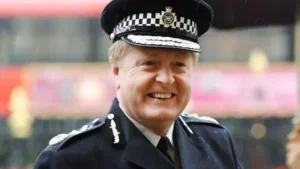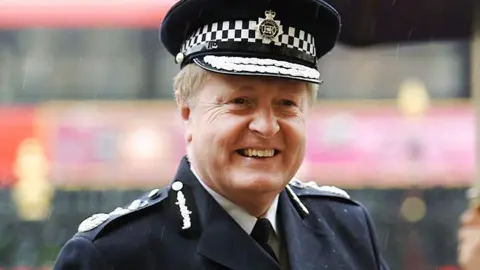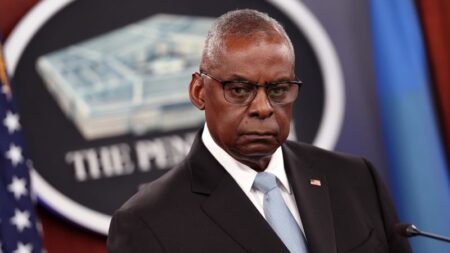Former Metropolitan Police commissioner, Ian Blair, has passed away at 72, leaving behind a legacy shaped by an extensive career in law enforcement. His tenure as the leader of the UK’s largest police force spanned from 2005 to 2008, a period marked by significant events including the devastating 7/7 bombings which struck London.
Ian Blair, born in Chester in 1953, joined the Metropolitan Police in 1974 through its graduate entry scheme, embarking on a career that saw him rise through the ranks, serving as both a uniformed officer and a detective. He was instrumental in leading critical investigations, most notably his response to the tragic King’s Cross fire in 1987, which deeply affected many and highlighted the challenges faced by the service. His promotion to chief constable of Surrey Police in 1998 paved the way for his eventual return to the Met as deputy commissioner in 2000.
His appointment as commissioner came just months before the horrific bombings on London’s public transport system, which resulted in the loss of 52 lives. This was a defining moment for Blair and the organization, shaping their responses to terror threats and community safety. Despite the challenges that came with leading the force in such turbulent times, Blair has been lauded for his dedication to public service; a sentiment echoed by prominent figures such as London Mayor Sadiq Khan, who recognized his commitment over three decades.
Tragically, shortly after the bombings, the Met faced further scrutiny in the wake of the shooting of Brazilian electrician Jean Charles de Menezes at Stockwell Underground station. Mistaken for a terror suspect, de Menezes’ death ignited a series of inquiries into police protocols and operational conduct. Though the investigation exonerated Blair of personal wrongdoing, it shadowed his role as commissioner and posed ongoing challenges throughout his tenure, demonstrating the complexities of maintaining public trust during crises.
The impact of Blair’s leadership extended beyond immediate crisis management to influence broader policing strategies in the UK. As he steered the Met through both the tumultuous days following the bombings and scrutiny over police conduct, he entered into public dialogue about the brand of policing in a post-9/11 world. His candid reflections on the weight of leadership emphasized its burdens and responsibilities, especially within an institution committed to protecting the public. In his resignation letter in 2008, he described his role as the proudest task of his life, underscoring his dedication to the service and the men and women who upheld its principles.
His departure from the position came after losing the support of then newly elected Mayor Boris Johnson, indicating a shifting political landscape in which the leadership of the police was closely tied to political oversight. Throughout his career, Blair advocated for reform and modernization within the police, striving to adapt to changing societal demands while maintaining standards of integrity within the force.
Blair’s contributions to policing, framed within his extensive experience and leadership during challenging times, have marked him as a significant figure in the history of the Met. He has been remembered not only for his operational decisions but for his determination to lead with dignity amidst scrutiny and adversity. His death marks the end of an era but his influence on policing and his commitment to public safety will resonate for generations to come.
In light of his passing, countless tributes have poured in, recognizing his dedication, exceptional skills, and the immense pressures he faced throughout his career. As public discourse continues surrounding the roles and responsibilities of policing, Ian Blair’s legacy offers a poignant reflection on the challenges and triumphs of modern law enforcement.











